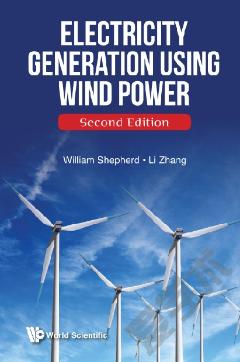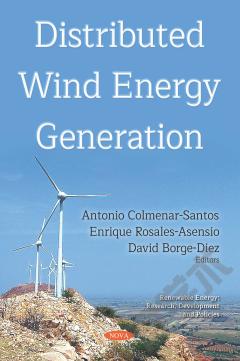Electricity Generation Using Wind Power
The use of the wind as an energy source is increasing and growing worldwide. Wind energy is an important non-fossil option to supplement fossil (coal, natural gas and oil) and nuclear fuels for the generation of electricity.Many parts of the world, particularly the coastlines of Western Europe, North Africa, North and South America, India, Eastern Russia, China, the Philippines, Australia and New Zealand, experience a high annual incidence of wind energy. The United Kingdom of Great Britain and Northern Ireland, together with the Republic of Ireland form a particularly windy location, being favoured with strong westerly winds. The technology of the design and installation of wind turbines and wind farms are, in fact, well established. Operational practice, though, is still being developed as engineers learn by experience.This book is written for electrical engineers concerned with the use of wind power for generating electricity. It incorporates some meteorological features of international wind supply plus a survey of the past and present wind turbines with technical assessment of the choice of turbine sites. Detailed coverage is given to the different types of electrical generator machines used and the electronic control devices employed in modern turbine systems.Importantly, this book devotes full chapters to the integration of wind farms into established electrical grid supply systems, and the environmental and economic aspects of wind generation. Engineers will be drawn to the practical approach in this book, featuring worked numerical examples — complete with answers — at the end of some chapters.
{{comment.content}}








 京公网安备 11010802027623号
京公网安备 11010802027623号